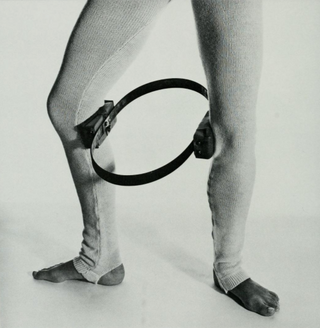
By: @ericabassotherapy
If most people were asked whether they thought they had lived through difficult enough experiences to warrant the label of having trauma they would say no. When we think of trauma our mind usually goes to the worst of the worst scenarios that could happen to humans. As we learn more about what falls under “trauma”, the more we begin to understand that it is much more common and nuanced than we had originally thought. Many of us did not go through childhood unscathed, without some subtle event that caused us to hold on to certain emotions or triggers that now affects us in adulthood. Parents or caregivers could have had the best of intentions and do the best they could with what they knew at the time, and still have unintentionally negatively affected the child. These moments or events in one’s childhood can become stuck, or unprocessed, since it’s near impossible for a child to process events on their own without the help of an adult.
Eye Movement and Desensitization and Reprocessing (EMDR) is a model of psychotherapy that allows individuals to heal from emotional distress and negative beliefs that are the result of disturbing life experiences. Similarly to how our bodies recover from physical trauma, studies have shown that the mind can heal from psychological trauma. Research studies on EMDR have been shown to be effective for treating post-traumatic stress disorder in significantly less time than traditional talk therapy alone. EMDR is now recognized as an effective, evidence-based form of treatment for trauma and a variety of other mental health conditions, including:
Anxiety and panic attacks
Addictions
Anger
PTSD and CPTSD
Eating disorders
Phobias
Chronic illness and medical issues
Pain (including phantom limb pain)
Performance anxiety
Depression and bipolar disorders
Sleep disturbances
Feelings of worthlessness and low self-esteem
Psychosis
Trauma resulting from sexual assault, violence, and abuse.
So you’re probably wondering, how does it work exactly? Therapists trained in EMDR use a combination of talk therapy and eye movements (or other bilateral stimulation) in session to target specific memories. The client’s job is to focus on aspects of the memory in the mind and use his eyes to track the therapist’s hand as it moves back and forth across their field of vision. Studies in neuroscience are still emerging, so researchers aren’t exactly sure of the mechanisms that occur in the brain. Harvard researchers believe these eye movements are connected to the biological mechanisms involved in rapid eye movement (REM) sleep, in which the client is able to begin to process the memory and associated feelings. Less traumatic or distressing everyday events don’t become “stuck” because when we reach REM sleep they are successfully processed in the brain. EEG tracings show that the eye movements utilized in EMDR temporarily slows an overstimulated amygdala down and synchronizes the brain waves, helping the client process the traumatic memory. Through this process, traumatic memories become “unstuck” and can now be processed like non-traumatic memories.
So, why do some memories stick with us over time? If an event was too overwhelming to process, especially if the individual who experienced it did not have support or validation for their experience, it becomes stuck. When we go into fight-or-flight, the rational thinking part of the brain can’t control the emotional part of the brain. These memories and associated feelings become stuck in the limbic system, instead of the cortex where memories are stored using language. When we experience present day triggers that remind us in some way of the event, it is as if we are transported back to the event, and taken out of the present moment.
Unprocessed memories and feelings are not in our conscious awareness so they never get dealt with, but that doesn’t mean they go away. Rather, they typically show up in the form of many health conditions. Trauma and other repressed emotions have been linked to decreased immune function, chronic illnesses, and many of the leading causes of deaths in America. The goal of EMDR therapy is to transform the meaning of the traumatic or disturbing event on an emotional level. Clients can begin feeling empowered through changing the narrative of their life story. The narrative now becomes not what’s happened to me, rather, what I choose to do with what has happened. EMDR can help the brain to understand the memory that happened in the past and that it’s no longer occurring in the present. This helps the individual to release the stored trauma so they can feel safe in the present.
References:
https://openaccesspub.org/ijpr/article/999
agani M, Amann BL, Landin-Romero R and Carletto S (2017) Eye Movement Desensitization and Reprocessing and Slow Wave Sleep: A Putative Mechanism of Action. Front. Psychol. 8:1935. doi: 10.3389/fpsyg.2017.01935
https://www.frontiersin.org/articles/10.3389/fpsyg.2017.01935/full#B46
https://www.ajpmonline.org/article/S0749-3797(98)00017-8/fulltext
https://www.nature.com/articles/pr2015197
Erica Basso is a Licensed Marriage & Family Therapist practicing statewide in California. She helps guide women in overcoming anxiety, perfectionism, and imposter syndrome. To learn more about working with her, visit www.ericabassotherapy.com.















